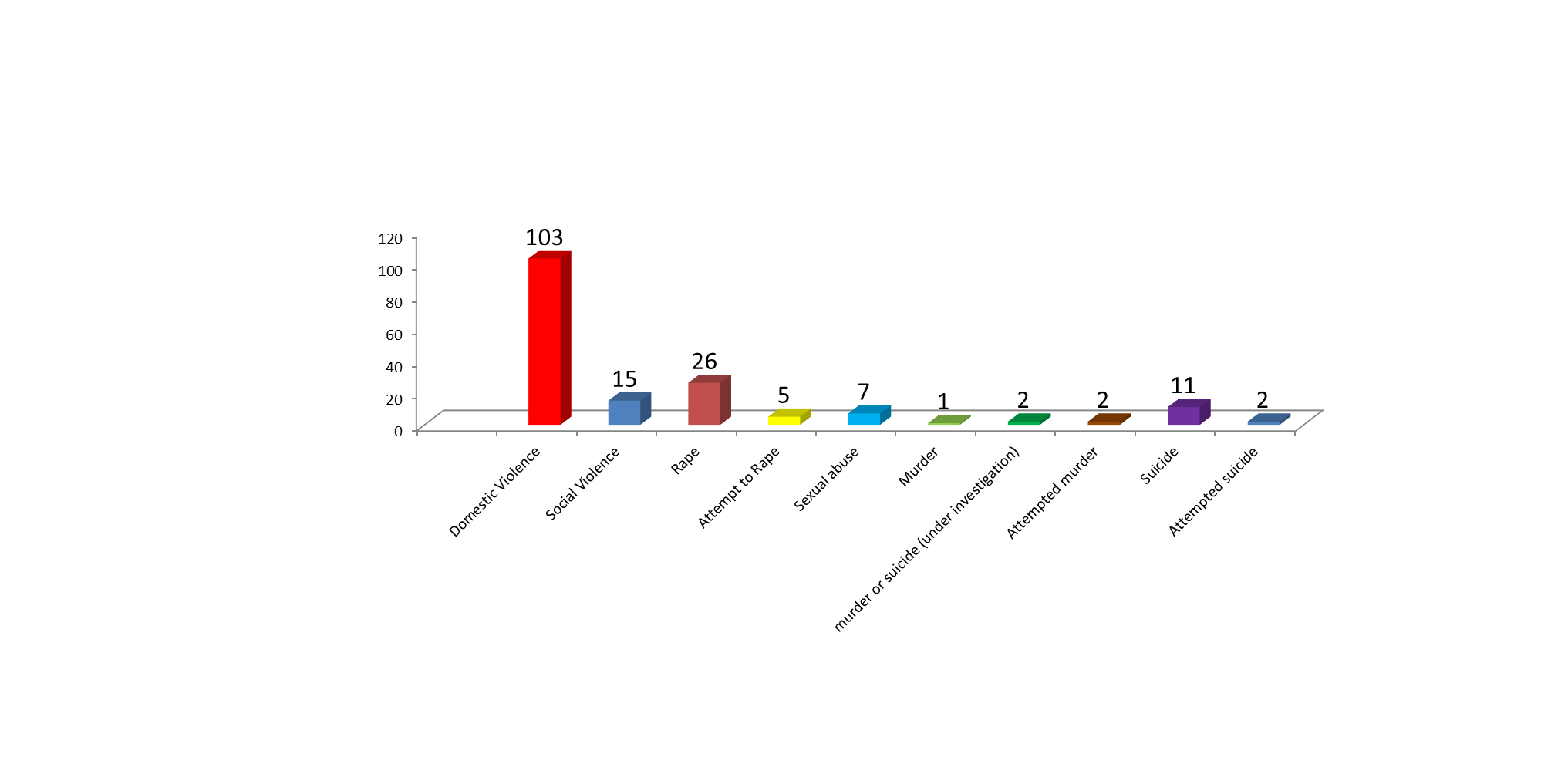
May 4, Kathmandu. During the lockdown1, 176 cases of different forms of violence against women and girls have been found to have taken place.
These cases have been documented through 3 hotlines run by Women’s Rehabilitation Centre (WOREC) and cases documented by the counselors, Women Human Right Defenders and community based organizations. Among this, 9 cases were collected from different media.
There are 103 cases of domestic violence, 15 cases of social violence, 26 cases of rape, 5 cases of attempt to rape, 1 case of murder, 7 cases of sexual abuse, 11 cases of suicide, 2 cases of attempted suicide, 2 cases of attempt to murder, 2 cases are related to cybercrime and 2 cases are under investigation to figure out whether the cases are of suicide or murder. The highest number of perpetrators to commit violence against women are husbands followed by family members. In 78 cases perpetrators are husbands and in 37 cases perpetrators are family members. Out of 26 collected cases of rape, 2 are cases of gang rape. These two cases of gang rape was recorded last week where lovers and his friends were found be involved.
Among 176 cases of violence, 18 cases have been committed by neighbors, 1 by father, 1 by own brother, 1 by family member, 3 by boyfriends/ lovers and perpetrators for 2 cases are yet to be identified. The age analysis of these cases shows that, women and girls aged 17-25 years have been mostly affected, 55 women and girls fall under this age group. Similarly, there are 45 women within the age group of 26-35 years, 27 within the age of 36-45. Similarly, 17 women are above 46 years and 25 are below 16 years. The age of 7 of them is not known.
Out of these documented cases, 74 have gone for registering complaint at police station, 22 have gone to Mediation Committee, 21 have shifted to their parent’s/ relative’s house being unable to withstand violence and remaining affected women and girls have not given complaints in any authorities for support and have said that they will seek support once the environment comes at ease.
Recommendations:
WOREC has been providing safe shelter and hotline services to women and girls affected by gender-based violence. Safe house for survivors is under operation in in six districts; Morang, Udaypur, Dhanusha, Kathhmandu, Dang and Kailai in coordination and collaboration of local government.
174 women and girls reporting problems due to COVID-19 and 167 survivors of gender based violence have received psychosocial counseling services through 28 counselors in different districts of Nepal. 341 family members of these affected women and girls have been provided counseling. The counseling has been done either through phone or personal meetings maintaining the social distance.
Thank you
Lubha Raj Neupane
Executive Director
---------
1 After lockdown (24 March to 1st May 2020)
2 Dhanusha 23,morang 26, rukum9, kailali 20, dang 14, kathmandu 3, bhaktapur 1, bardiya 4, siraha 35, saptari 1, udaypur 14, sunsari 12 banke 2, syngja 2, baglung 1, mahotari 7 , rauthat 1, parsha 1.